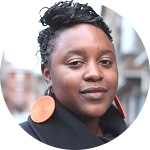Regional powers have joined the Democratic Republic of Congo’s beleaguered president Joseph Kabila in calling for rebel forces in the east of the country to pull out of Goma.
On Tuesday, M23 took control of the provincial capital of North Kivu, which is one of the most important cities in the Democratic Republic of Congo, without firing a single shot.
After two days of emergency talks with the presidents of Rwanda and Uganda, Paul Kagame and Yoweri Musveni, the trio have called for an immediate end to a rebellion which is threatening to descend into all-out war.
However, their announcement comes the day after the publication of a controversial UN report which accuses the Rwandan military of not only funding M23 but also commanding them.
This is not the first time Kagame, or indeed Musveni, has been accused of trying to destabilise Congo but the timing of this report coupled with Rwanda’s recent ascendancy to the UN Security Council makes the allegations even more disturbing.
And fresh reports say that M23 – which was only formed in April this year – now controls the town of Sake on the road to the major city of Bukavu in South Kivu, raising fears that the rebels could go all the way to the Congolese capital Kinshasa.
Speaking at a rally held in Goma on Wednesday, M23 spokesperson Colonel Vianney Kazarama said as much: "We are now going to Kinshasa. No one will divide this country."
Just how a group of approximately 1,250 Congolese army mutineers (according to UN figures) was able to take a city with a population of one million in the presence of over 1,500 UN peacekeepers is the subject of widespread international disbelief.
But this incredulity is underscored by fear of the possibility of a humanitarian crisis.
There are currently 2.5 million internally displaced persons (IDPs) in eastern Congo, and the more than 50,000 people have fled camps and homes since Sunday.
And this number could increase dramatically if fighting breaks out between government forces and rebels, although so far there has been no sign of resistance from the Congolese army.
‘Failed state’
Despite an abundance of natural resources, DRC is one of the poorest countries on earth.
According to World Bank figures, the average annual income is just $190.
The Congo is also routinely held up as Africa’s most glaring example of a ‘failed state’ but the reasons for its problems are multilayered and complex.
Belgium’s rapacious brand of imperialism was followed by half a century of corrupt and negligent rule as the country’s leaders, and international sponsors, scramble to plunder the country’s natural wealth, which includes gold, diamonds, timber and coltan –a key component in mobile phones and computers.
The Congolese people have little to show for all DRC’s abundant natural resources, except for a series of conflicts which have an estimated five million people dead since 1996.
Despite scant media coverage, this is the highest conflict-related death toll since the Second World War.
Conflict
But NGOs say that eastern Congo has been in a heightened state of crisis since April when former militia group Congres National pour la Defense du Peuple (CNDP) soldiers defected to form a new group, the M23.
The M23 say Kabila failed to integrate them properly into the army in line with a peace deal that ended a previous army revolt on March 23, 2009 (hence the name).
Since then, security in eastern Congo has been undermined by various armed groups who abuse, torture, kidnap and kill civilians at will.
Women are particularly vulnerable as sexual violence in the region is pandemic.
"Only now with the strategic town of Goma under threat, the world is starting to take notice. But since April the civilian population has been subjected to a staggering increase in killing, rape and extortion," Oxfam America’s Senior Humanitarian Policy Advisor Noah Gottschalk said.
DRC’s weak central government means that many people are forced to take justice into their own hands to protect themselves.
This has led to the formation of even more armed forces in the area, adding to the state of lawlessness in eastern Congo.
"The Congolese Government, the United Nations, the international community must listen and respond to the people paying the ultimate price for the conflict," said Gottschalk.









